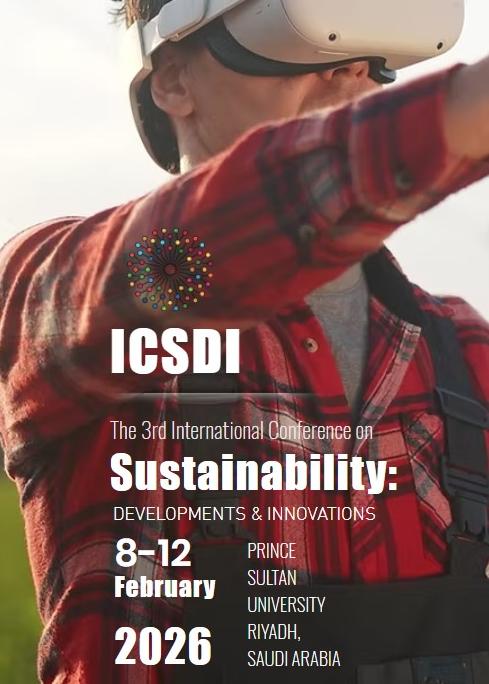5th IEEE GLOBECOM 2017 Workshop on Trusted Communications with Physical Layer Security
IEEE Globecom TCPLS 2017
- URL: https://sites.google.com/site/globecomtcpls/tcpls2017
- Event Date: 2017-12-08 ~ 2017-12-08
- Submission Date: 2017-07-01
- Location: Singapore, Singapore
CALL FOR PAPERS
5th IEEE GLOBECOM 2017 Workshop on Trusted Communications with Physical Layer Security (TCPLS2017), 8 December, 2017, Singapore
EDAS Submission link: https://edas.info/newPaper.php?c=23469&track=85955
Paper Submission: July 1st, 2017
Decision Notice: September 1st, 2017
Camera-Ready: October 1st, 2017
URL: https://sites.google.com/site/globecomtcpls/tcpls2017
Due to the broadcast nature of wireless channels, security and privacy is of utmost concern for future wireless technologies. However, how to securely transfer confidential information over a wireless network in the presence of eavesdroppers that may intercept the information exchange between legitimate terminals still remains a challenging task. Although security was originally viewed as a high-layer problem to be solved using cryptographic methods, physical (PHY) layer security is now emerging as a promising means of defense to realize wireless secrecy in communications. In PHY layer security, the core idea is to exploit the characteristics of wireless channels such as fading or noise to design efficient secure transmission strategies, such that the message from the source to the intended receiver are kept confidential from both passive and active eavesdroppers. Over the past few years, PHY layer security has been widely recognized as a key enabling technique for secure wireless communications in future networks.
This workshop aims to bring together practitioners and researchers from both academia and industry for discussion and technical presentations on fundamental and practically relevant questions related to the many challenges arising from secure PHY layer communications. It also aims to provide the industry with a fresh insight into the development of practical PHY layer security in future wireless networks. In line with such objectives, original contributions are solicited in topics of interest to include, but not limited to, the following:
- Secure methodologies and architectures for mobile and wireless networks
- Secure signal processing
- Secure fundamental theory
- Secure advanced spatial diversity techniques (secure cooperative communications, secure two-way cooperative communications, secure MIMO communications and secure cognitive radio systems)
- Secure resource allocation (secure optimization, secure cross-layer optimization and game theory techniques)
- Multi-user information theoretical security (coordinated design and distributed design)
- Security and privacy in the Internet of Things
- Security for HetNets, massive MIMO systems, and mm-wave transmission
- Cross-layer designs for security
- Security and quantum communications
- Trust, security and privacy in e-government, e-systems, and social networking
- Trust, security and privacy in cloud computing
- Performance of practical testbeds for PHY layer security
Workshop Organizers
Steering Committee:
H. Vincent Poor, Princeton University, USA
General Chairs:
Trung Q. Duong, Queen’s University Belfast, UK
TPC Chairs:
Nan Yang, Australian National University, Australia
Kamel Tourki, Huawei Technologies, France
Publicity Chair:
Al-Sakib Khan Pathan, Southeast University, Bangladesh
====================================================
5th IEEE GLOBECOM 2017 Workshop on Trusted Communications with Physical Layer Security (TCPLS2017), 8 December, 2017, Singapore
EDAS Submission link: https://edas.info/newPaper.php?c=23469&track=85955
Paper Submission: July 1st, 2017
Decision Notice: September 1st, 2017
Camera-Ready: October 1st, 2017
URL: https://sites.google.com/site/globecomtcpls/tcpls2017
Due to the broadcast nature of wireless channels, security and privacy is of utmost concern for future wireless technologies. However, how to securely transfer confidential information over a wireless network in the presence of eavesdroppers that may intercept the information exchange between legitimate terminals still remains a challenging task. Although security was originally viewed as a high-layer problem to be solved using cryptographic methods, physical (PHY) layer security is now emerging as a promising means of defense to realize wireless secrecy in communications. In PHY layer security, the core idea is to exploit the characteristics of wireless channels such as fading or noise to design efficient secure transmission strategies, such that the message from the source to the intended receiver are kept confidential from both passive and active eavesdroppers. Over the past few years, PHY layer security has been widely recognized as a key enabling technique for secure wireless communications in future networks.
This workshop aims to bring together practitioners and researchers from both academia and industry for discussion and technical presentations on fundamental and practically relevant questions related to the many challenges arising from secure PHY layer communications. It also aims to provide the industry with a fresh insight into the development of practical PHY layer security in future wireless networks. In line with such objectives, original contributions are solicited in topics of interest to include, but not limited to, the following:
- Secure methodologies and architectures for mobile and wireless networks
- Secure signal processing
- Secure fundamental theory
- Secure advanced spatial diversity techniques (secure cooperative communications, secure two-way cooperative communications, secure MIMO communications and secure cognitive radio systems)
- Secure resource allocation (secure optimization, secure cross-layer optimization and game theory techniques)
- Multi-user information theoretical security (coordinated design and distributed design)
- Security and privacy in the Internet of Things
- Security for HetNets, massive MIMO systems, and mm-wave transmission
- Cross-layer designs for security
- Security and quantum communications
- Trust, security and privacy in e-government, e-systems, and social networking
- Trust, security and privacy in cloud computing
- Performance of practical testbeds for PHY layer security
Workshop Organizers
Steering Committee:
H. Vincent Poor, Princeton University, USA
General Chairs:
Trung Q. Duong, Queen’s University Belfast, UK
TPC Chairs:
Nan Yang, Australian National University, Australia
Kamel Tourki, Huawei Technologies, France
Publicity Chair:
Al-Sakib Khan Pathan, Southeast University, Bangladesh
====================================================













